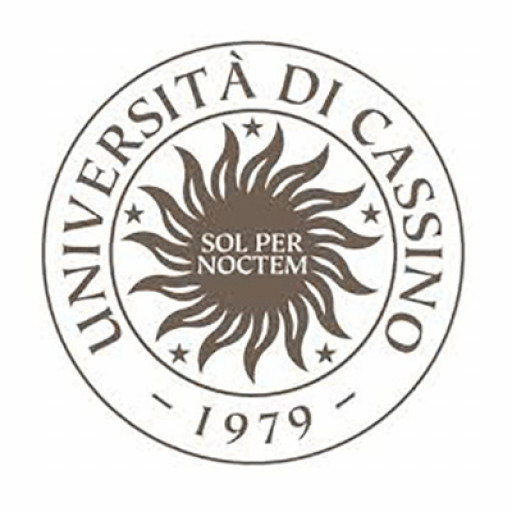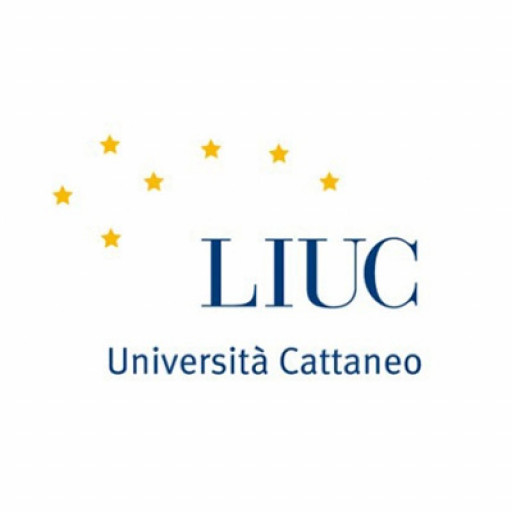Photos of university / #aaustudieliv
International Business Economics at Aalborg University is a comprehensive master's degree program designed to equip students with advanced knowledge and practical skills in the field of global business and economics. The program emphasizes an interdisciplinary approach, combining economic theory, business strategy, and international relations to prepare graduates for dynamic roles in multinational corporations, consulting firms, and governmental agencies. Throughout the course, students engage with key topics such as international trade, corporate finance, market analysis, economic policy, and sustainable development. The curriculum is structured to foster critical thinking, analytical capabilities, and problem-solving skills essential for understanding complex economic environments and making informed decisions.
Students have the opportunity to participate in hands-on projects, case studies, and internships that bridge theoretical knowledge with real-world applications. The program also offers specialized electives, allowing students to tailor their education according to personal interests and career ambitions. Through collaboration with international partners and exposure to diverse economic contexts, students develop a global perspective and cultural awareness. The degree prepares graduates for careers across various sectors, including international business consultancy, economic analysis, policy advising, and academia. Additionally, the program promotes research skills and provides a solid foundation for those interested in pursuing doctoral studies. The faculty comprises experienced researchers and industry professionals who bring practical insights into the classroom. Overall, the International Business Economics program at Aalborg University aims to cultivate highly skilled, globally oriented economists and business professionals equipped to contribute to sustainable economic development worldwide.
The International Business Economics program at Aalborg University offers a comprehensive and rigorous education designed to equip students with the theoretical knowledge and practical skills necessary to navigate the complex global business environment. The program emphasizes the development of analytical and strategic competencies essential for understanding international markets, economic policies, and business operations across different countries. Throughout the programme, students gain insights into global trade, market dynamics, and economic development, enabling them to evaluate international business strategies critically.
The curriculum combines core courses in economics, such as microeconomics, macroeconomics, and international trade theories, with specialized modules focusing on global business strategy, international marketing, and cross-cultural management. Students also explore topics related to sustainable development, corporate social responsibility, and emerging economic trends that influence international commerce. Practical components, including case studies, group projects, and internships, are integrated into the program to foster real-world application of theoretical concepts and to enhance problem-solving skills.
Additionally, the program emphasizes quantitative methods and data analysis, providing students with the tools necessary to interpret economic data and make informed business decisions. Language skills and intercultural competence are also prioritized to prepare students for effective communication in diverse international settings. The program encourages international mobility and collaboration, often providing opportunities for exchange semesters at partner universities worldwide, which enrich students’ global perspectives.
Graduates of the International Business Economics program at Aalborg University are well-positioned to pursue careers in international consulting, global marketing, economic analysis, and roles within multinational corporations or governmental agencies. The program aims to cultivate analytical thinking, strategic planning abilities, and a deep understanding of global economic mechanisms, making graduates valuable assets in the interconnected world of international business. With a strong emphasis on innovation, responsible business practices, and sustainable development, the program prepares students to contribute meaningfully to global economic and societal challenges.
Admission to the International Business Economics Master's programme at Aalborg University typically requires applicants to hold a relevant Bachelor's degree or an equivalent qualification in Business Administration, Economics, or a related field from an accredited institution. Prospective students are expected to demonstrate proficiency in English, usually by providing valid test scores such as IELTS (minimum score of 6.5 overall) or TOEFL (minimum score of 90 internet-based test). Additionally, applicants must submit academic transcripts, a CV outlining relevant work or internship experience, and a motivation letter explaining their interest in the programme and career aspirations. Some applicants may also be required to include letters of recommendation. The programme is designed for students with a strong foundation in economics and business principles, so applicants should have completed coursework in microeconomics, macroeconomics, and quantitative methods. Prior knowledge of business law, marketing, and management may also be beneficial. The selection process evaluates academic performance, motivation, relevant experience, and potential to succeed in a challenging, international academic environment. International students must also meet visa requirements for studying in Denmark. The university values diversity and encourages applicants from various countries to apply, provided they meet the academic and language criteria. The admissions decisions are communicated through official university channels, and applicants are advised to submit their complete application packages before the specified deadline to ensure full consideration.
The financing of the International Business Economics programme at Aalborg University is primarily structured through a combination of public funding, student contributions, and available financial aid options. As an educational institution in Denmark, Aalborg University benefits from government subsidies that support higher education, ensuring the program remains accessible to both Danish and international students. Tuition fees for international students are established according to Danish regulations, with precise costs published annually on the university’s official website. These fees cover access to lectures, materials, and integrated activities that enhance the learning experience.
Students are encouraged to seek financial support through several channels. EU/EEA students may be eligible for scholarships, grants, or student loans provided by Danish authorities or their home countries. Non-EU/EEA students are generally required to pay tuition fees but may explore scholarship opportunities offered by the university, private foundations, or international organizations dedicated to supporting higher education. In addition, the university might offer work-study options, allowing students to take part-time jobs on or near campus to supplement their income during their studies.
The university also provides guidance on Swedish student loans and grants for those eligible through the Danish student finance system. Many students opt to finance their studies through a combination of personal savings, parental support, and external funding sources. Financial planning for studying at Aalborg University should consider living costs in Denmark, including accommodation, food, transportation, and study materials, which are crucial elements to account for when assessing the total cost of education.
Furthermore, Aalborg University frequently updates its financial policies and supports available, aiming to make higher education as accessible as possible. International students are also advised to explore potential funding through their home institutions, international exchange programs, or bilateral agreements between their home country and Denmark. Overall, financing an international business economics degree involves diverse options and support structures designed to assist students in meeting their educational expenses without undue hardship.
International Business Economics at Aalborg University offers students a comprehensive understanding of the financial, economic, and managerial aspects of global business operations. The program is designed to equip students with the analytical skills and practical knowledge necessary to navigate the complex international economic environment. The curriculum emphasizes core topics such as microeconomics, macroeconomics, international trade, business strategy, and financial management, complemented by specialized courses in areas like marketing, entrepreneurship, and quantitative methods. The program adopts an interdisciplinary approach, integrating economic theory with real-world business challenges, which prepares graduates for careers in multinational corporations, consultancy firms, governmental agencies, and international organizations.
Students benefit from Aalborg University’s unique problem-based learning (PBL) methodology, fostering teamwork, critical thinking, and innovative problem-solving skills. This active learning approach encourages students to work on real cases and projects, often in collaboration with industry partners, enhancing their practical understanding of international business dynamics. The program also offers opportunities for internships and exchange semesters, allowing students to gain international experience and build global networks.
Career prospects for graduates include roles such as international business analyst, economic consultant, financial advisor, export manager, or policy advisor. The program emphasizes internationalization, preparing students to work effectively in diverse cultural and economic contexts. The faculty consists of experienced academics and industry professionals committed to providing high-quality education and research-based teaching. Graduates of the program are well-positioned to pursue advanced studies or enter the workforce with a strong foundation in international business economics. The program duration is typically two years (full-time), leading to a Master’s degree recognized across Europe and beyond.








